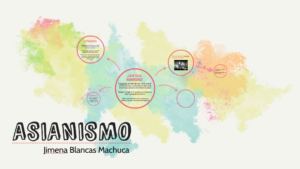
Asianismo
Asianismo is a socio-political and cultural ideology that emphasizes the importance of Asian unity, identity, and cooperation in the face of globalization and Western dominance. Rooted in the shared history, heritage, and values of Asian nations, Asianismo seeks to promote solidarity, self-reliance, and development across the region.
Understanding Asianismo
Definition and Origin
Asianismo, derived from the Spanish word “asiático” meaning Asian, traces its origins to the early 20th century when Asian intellectuals and leaders began advocating for a pan-Asian identity and consciousness. Influenced by nationalist movements and anti-colonial struggles, Asianismo emerged as a response to Western imperialism and cultural hegemony.
Principles and Ideologies
At its core, Asianismo espouses the belief in the inherent dignity, diversity, and potential of Asian societies. It rejects the notion of Asia as a passive or subordinate entity and seeks to reclaim agency, autonomy, and leadership in shaping the future of the region. Central to Asianismo is the idea of “Asia for Asians,” emphasizing self-determination, cooperation, and mutual respect among Asian nations.
History of Asianismo
Origins and Development
The roots of Asianismo can be traced back to the early 20th century, with the rise of nationalist movements and anti-colonial struggles across Asia. Influential figures such as Sun Yat-sen, Rabindranath Tagore, and Sukarno played pivotal roles in promoting the ideals of Asian unity and solidarity. The concept gained momentum during the post-colonial era, as newly independent Asian nations sought to assert their sovereignty and forge closer ties with one another.
Key Figures and Movements
Throughout history, numerous individuals and organizations have championed the principles of Asianismo. From political leaders and intellectuals to artists and activists, these figures have advocated for greater cooperation, integration, and empowerment among Asian nations. Movements such as the Bandung Conference of 1955 and the Non-Aligned Movement exemplify the spirit of Asianismo and its quest for collective strength and resilience.
Core Tenets of Asianismo
Cultural Identity
One of the central tenets of Asianismo is the preservation and promotion of Asian cultural identity and heritage. From language and literature to art and architecture, Asianismo celebrates the rich diversity and traditions of Asia, recognizing them as sources of strength, inspiration, and resilience.
Socio-Political Philosophy
Asianismo advocates for a socio-political philosophy that reflects the unique values, aspirations, and priorities of Asian societies. This philosophy emphasizes principles such as social harmony, collective welfare, and sustainable development, challenging Western-centric models of governance and economics.
Economic Development
Asianismo places a strong emphasis on economic development and cooperation among Asian nations. Through initiatives such as regional trade agreements, infrastructure projects, and technology partnerships, Asianismo seeks to harness the economic potential of the region and uplift the livelihoods of its people.
Asianismo in Contemporary Society

Impact on Politics
Asianismo continues to exert influence on regional and global politics, shaping diplomatic relations, regional alliances, and geopolitical dynamics. From initiatives such as the Asian Infrastructure Investment Bank (AIIB) to forums like the East Asia Summit (EAS), Asianismo has fostered dialogue, cooperation, and consensus-building among Asian nations.
Cultural Influence
Asianismo has also had a significant impact on cultural exchange, artistic expression, and creative collaboration across Asia. From literature and cinema to music and fashion, Asianismo has inspired a renaissance of cultural pride, innovation, and cross-cultural dialogue, enriching the global cultural landscape.
Economic Cooperation
Economically, Asianismo has facilitated greater trade, investment, and integration among Asian economies, driving growth, prosperity, and development in the region. Initiatives such as the Belt and Road Initiative (BRI) and the Regional Comprehensive Economic Partnership (RCEP) underscore the commitment of Asian nations to deepening economic ties and fostering shared prosperity.
Challenges and Criticisms
Ethnocentrism
One of the main criticisms of Asian-ismo is its potential for ethnocentrism and exclusionary practices, particularly towards non-Asian groups and cultures. Critics argue that a narrow focus on Asian identity and interests may overlook the contributions and perspectives of other regions and communities, leading to tensions and conflicts.
Neo-Imperialism
Some critics view Asianismo as a form of neo-imperialism or hegemony, whereby dominant Asian powers seek to assert their influence and control over smaller and weaker nations in the region. This has raised concerns about power imbalances, exploitation, and inequality within the Asian community, undermining the principles of equality and solidarity.
Globalization
The forces of globalization pose challenges to the ideals of Asian-ismo, as they promote interconnectedness, interdependence, and cultural hybridity across borders. In an increasingly globalized world, the preservation of distinct cultural identities and values becomes more challenging, raising questions about the relevance and viability of Asianismo in the 21st century.
Future Outlook
Despite these challenges, the future of Asian-ismo remains promising, as Asian nations continue to assert their influence, resilience, and dynamism on the global stage. With growing economic integration, cultural exchange, and diplomatic cooperation, Asianismo has the potential to shape a more inclusive, equitable, and prosperous future for Asia and the world.
Case Studies
The Rise of Asian Economies
The rapid economic growth and development of Asian economies, such as China, India, and South Korea, exemplify the success of Asianismo in promoting economic cooperation and integration. Through policies of trade liberalization, industrialization, and technological innovation, these countries have emerged as global economic powerhouses, reshaping the balance of economic power in the world.
Cultural Renaissance in Asia
The resurgence of Asian culture and creativity on the global stage reflects the influence of Asian-ismo in promoting cultural pride, innovation, and exchange. From the popularity of K-pop and Bollywood to the success of Asian literature and cinema, Asian culture has captured the imagination of audiences worldwide, transcending geographical and linguistic boundaries.
Asianismo vs. Westernism
Asianismo represents a counter-narrative to Westernism, challenging Western dominance and hegemony in global affairs. While Westernism emphasizes individualism, liberalism, and free-market capitalism, Asian-ismo emphasizes collective welfare, social harmony, and state intervention in the economy. The tension between these two ideologies reflects broader debates about cultural identity, political philosophy, and economic development in the 21st century.
Conclusion
In conclusion, Asian-ismo offers a compelling vision for the future of Asia, rooted in unity, identity, and cooperation. By embracing the values of cultural pride, socio-political resilience, and economic development, Asian-ismo has the potential to shape a more inclusive, equitable, and prosperous future for the region and the world.
FAQs
-
Is Asian-ismo a form of nationalism?
- Asianismo is not strictly a form of nationalism but rather a socio-political and cultural ideology that emphasizes Asian unity and identity. While it celebrates the cultural heritage and diversity of Asia, it does not necessarily advocate for exclusive or exclusionary practices.
-
What are some examples of Asian-ismo in practice?
- Examples of Asian-ismo in practice include regional trade agreements, cultural exchange programs, and diplomatic initiatives aimed at promoting cooperation and integration among Asian nations. The Belt and Road Initiative (BRI) and the Asian Infrastructure Investment Bank (AIIB) are notable examples of Asianismo-inspired initiatives.
-
Does Asian-ismo promote isolationism?
- While Asian-ismo emphasizes the importance of Asian unity and self-reliance, it does not necessarily promote isolationism. Instead, it advocates for active engagement with the global community while safeguarding the interests and values of Asian nations.
-
How does Asian-ismo differ from pan-Asianism?
- While both Asian-ismo and pan-Asianism advocate for Asian unity and cooperation, they differ in their scope and objectives. Pan-Asianism seeks to promote political and cultural unity among all Asian peoples, regardless of nationality or ethnicity, whereas Asian-ismo focuses more narrowly on the interests and identity of Asian nations.
-
What role does Asian-ismo play in shaping regional geopolitics?
- Asian-ismo plays a significant role in shaping regional geopolitics by promoting diplomatic dialogue, economic cooperation, and strategic alliances among Asian nations. By fostering a sense of solidarity and common purpose, Asian-ismo seeks to create a more stable, prosperous, and harmonious region.


